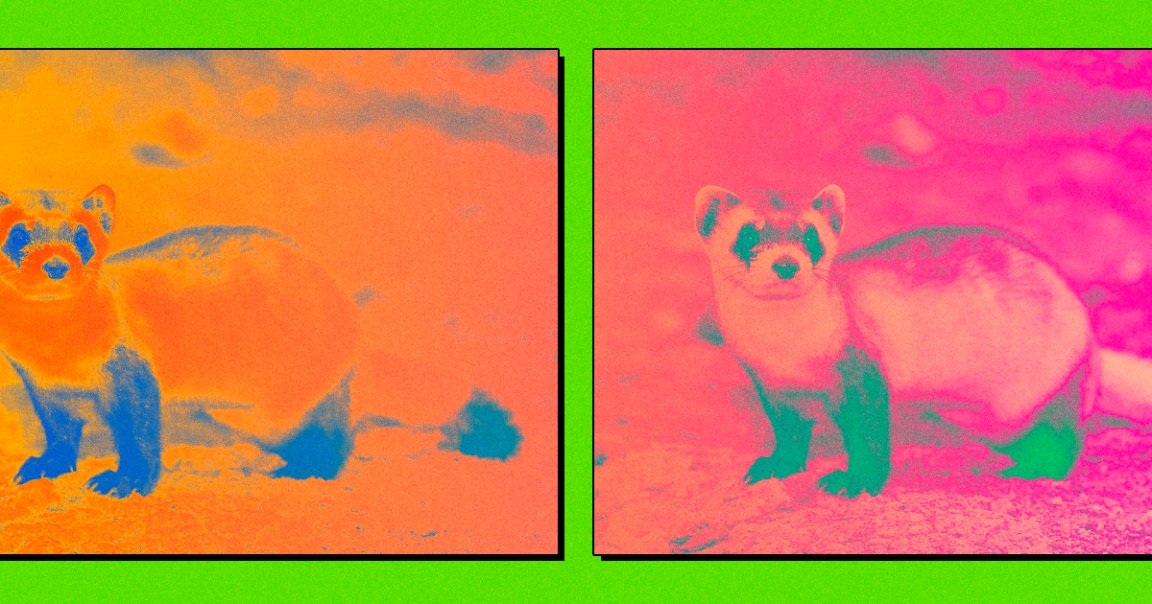
It’s Alive!
For the first time, scientists cloned an organism on the United States’ list of endangered species: a black-footed ferret that they’ve named Elizabeth Ann.
Elizabeth Ann was born on December 10 and, as far as the Fish and Wildlife Service scientists raising her can tell, is a perfectly healthy and lively young critter, The Associated Press reports. The tentative success story, a first for conservationists, suggests that cloning could serve as a way to help breathe life into species that are on the brink of total extinction.
New Tools
Cloning technology isn’t new by any means, but recent advances are making it a viable tool for conservationists rather than a scientific oddity.
In this case, scientists at the Fish and Wildlife Service as well as the conservation organization Revive & Restore used the genes from a ferret that died 30 years ago to clone Elizabeth Ann, according to the AP. And while the ferret’s mother is tame, Elizabeth Ann behaves like a wild animal, making it possible for her to survive outside of a lab.
“How can we actually apply some of those advances in science for conservation? Because conservation needs more tools in the toolbox,” Ryan Phelan, co-founder and executive director of Revive & Restore told the AP. “That’s our whole motivation. Cloning is just one of the tools.”
Family Planning
Elizabeth Ann’s birth was the result of a seven-year effort, according to the AP. Her birth and survival offer a new opportunity to revive a species that was actually thought to be entirely extinct due to loss of habitat until the early 1980s.
But cloning won’t be without its challenges. All black-footed ferrets alive today come from just seven ancestors, and their genetic similarity makes them prone to disease. Unfortunately, cloning technology can replicate those ferrets, but it can’t yet introduce the sort of variability that will give them a better shot in the wild.
READ MORE: Scientists clone the first U.S. endangered species [The Associated Press]
More on cloning: Chinese Scientists Cloned Gene-Edited Monkeys With Horrifying Results